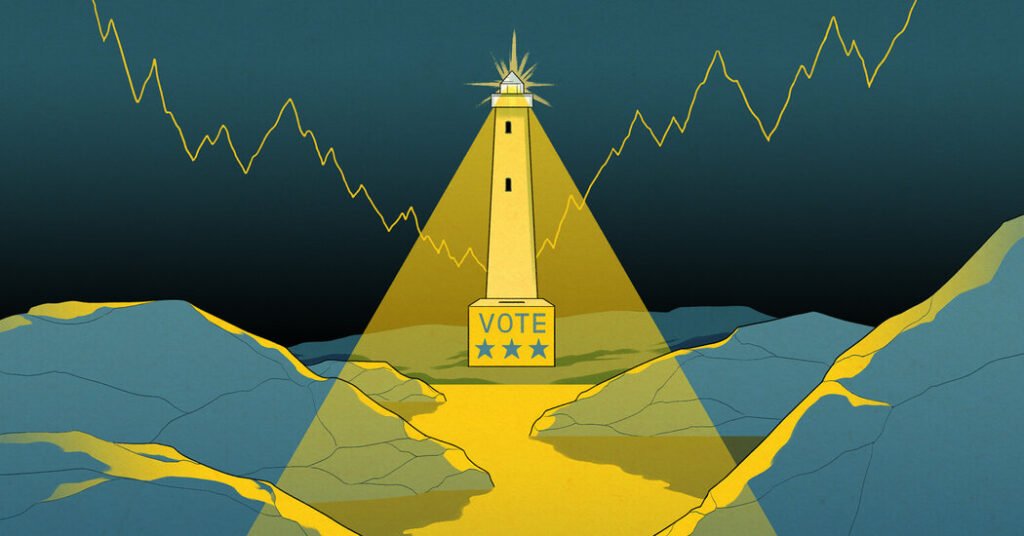The stock market is soaring, yet there is plenty to worry about: bubbling conflicts and outright wars around the world and a close and contentious election in the United States.
At times like these, market history can be a source of comfort, at least up to a point.
Relying on history for wisdom about investing assumes the future will resemble the past. That has been a good assumption in the United States for the last century or so. From 1926 through 2023, large U.S. stocks returned 10.3 percent annualized, according to Morningstar, the financial services company. The stock market generated those fabulous returns for anyone able to stick it out, despite turmoil and the declines associated with wars, recessions, depressions and extreme political conflict.
That history is essentially why I favor a time-tested strategy: buying a broad mix of stocks and bonds and holding on to them come what may, without allowing politics or world crises to intrude into my investment decisions.
Yet my central assumption — that this time won’t be different for the stock or bond market — could be incorrect. Every so often, there are major breaches with history when countries are devastated by economic collapse, war or extreme political change.
Partisans on both sides of the presidential election are warning that, if the wrong candidate wins, this contest could set the United States on a dangerous path. This is a financial column, so I won’t evaluate the merits of those claims here: I’m merely acknowledging that grave concerns are in the air. And while I take these issues seriously, I’m enough of an optimist to believe that regardless of the winner, the markets and the economy will eventually trend upward.
But I could be wrong. And if you are drawn to the dire predictions, you may find my unruffled approach to investing unsatisfying.

